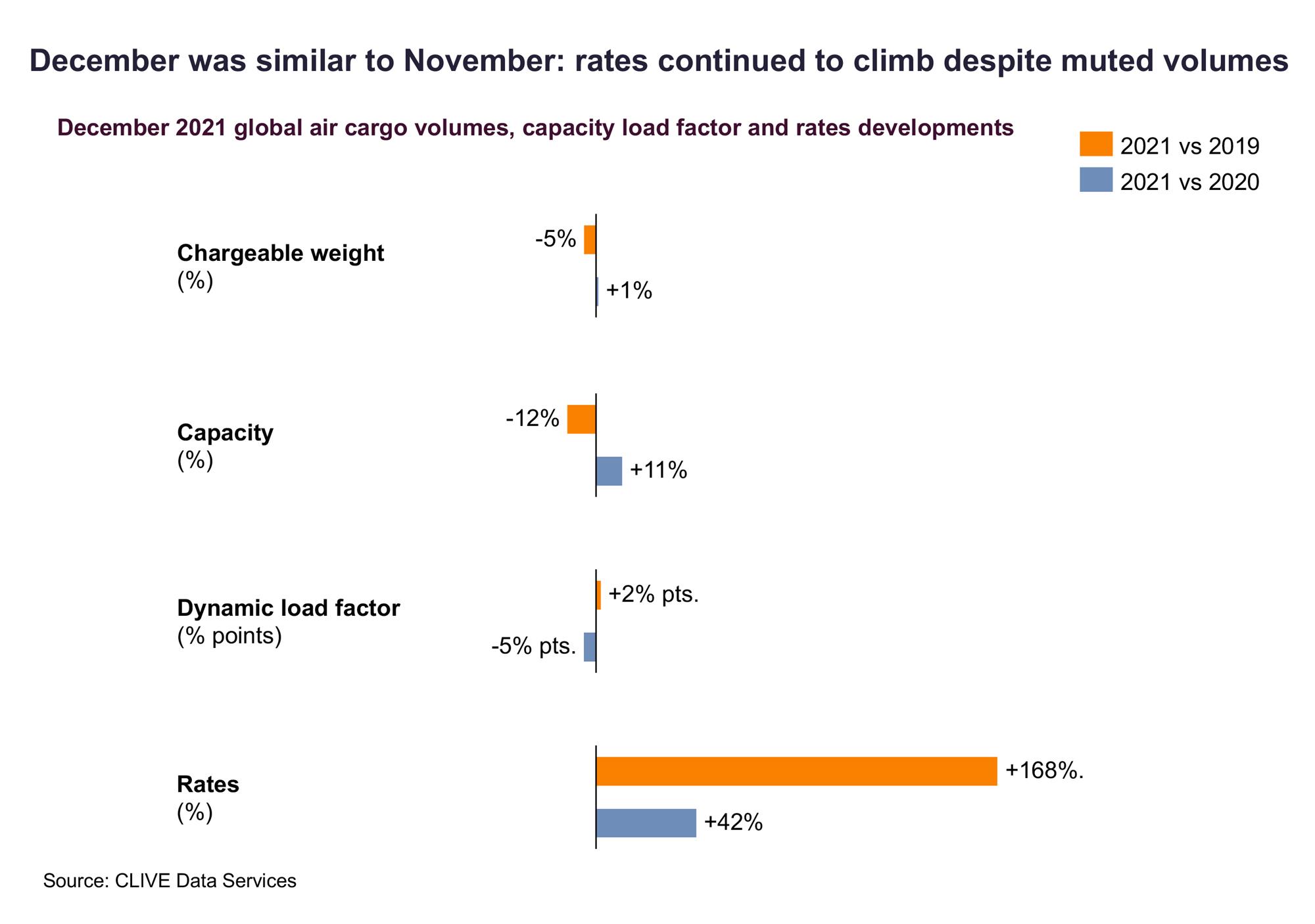
December demand in the general air cargo market put a "final dampener" on 2021 peak season volumes as continuing supply chain issues, congestion on the ground, and concerns over the new Omicron virus suppressed any end-of-year uptick, according to industry analysts, CLIVE Data Services.
In its latest report, it said air cargo demand in December — traditionally the peak season — fell by 5% compared with the same month in 2019, which it used for comparison amid the impact of Covid-19 in the 2020 figures.
CLIVE described this as one of the "weaker months of the year," which follows a 3% drop seen in November compared with two years earlier.
It said versus December 2020, volumes rose by just 1%.
"Q4 2021 data has reflected CLIVE's statement earlier in the year that issues facing the air cargo market were driven by supply chain challenges, and less so by soaring volumes," the industry analysts added.

In October, CLIVE’s 'dynamic loadfactor' — which measures both the volume and weight perspectives of cargo flown and capacity available to produce a true indicator of airline performance — was lower "for the time of year than expected," followed in November by another 1.2% drop in volumes.
Slow return to pre-Covid level
CLIVE noted that cargo capacity has remained "slow to return to the pre-Covid level." It said in December last year, it remained below 12% compared to December 2019 and the 'dynamic loadfactor' for this December of 65% was up by 2% versus two years ago.
Despite the unexpected decline in demand, CLIVE noted that rates continued to surge on the back of supply chain issues and stronger load factors.
It said airfreight rates in December climbed at a global level to 168% ahead of December 2019, and also 42% up from December 2020.
This followings earlier monthly gains compared to 2019 of 155% and 159% in October and November 2021 respectively.
"It was certainly more complex to ship goods from A to B in 2021 by all modes of transport, which has continued to increase rates. In the general air cargo market, we’ve seen airlines focus more on managing margins than on filling aircraft," said Niall van de Wouw, CLIVE’s managing director.
"From a volume perspective, compared to 2019, November and December did not produce 'the peak of all peaks'. The capacity and 'dynamic loadfactor' trends were more or less in line with earlier months, but rates kept on climbing," he added.
"So, what is at play here? This latest December data amplifies what we saw in November, with issues on the ground impacting the efficiency of the value chain," van de Wouw continued. "The rapid increase on Omicron and its impact on staff availability, hard lockdowns and their impact on business and consumer confidence are likely at play here."
"Not-so-strong" end of the year
van de Wouw noted that despite the strong showing at the start of 2021, the year ended in a relatively lower note than expected.
"Looking at 2021 overall, after a very strong start to the year and pretty solid middle months, we witnessed a not-so-strong ending of the year," he said.
"The wear and tear of close to 20 months of Covid started to really impact the efficiency of the value chain towards the end of 2021, and there are still no fundamental changes expected in the short-term that would change the current dynamics of supply chain shortages and elevated rates."



